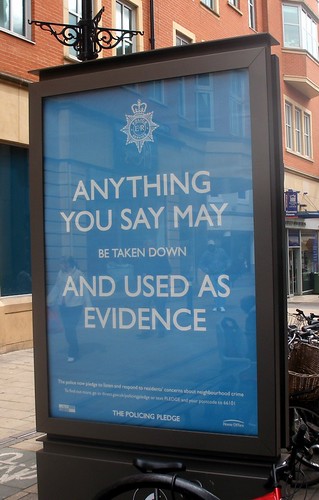 The phrase “evidence-based medicine” is pervasive in health care now. As the phrase becomes more and more common, there seems to be a growing chasm between those that utilize the scientific method, and those that don’t. It’s creating a rather intriguing problem for patients and practitioners.
The phrase “evidence-based medicine” is pervasive in health care now. As the phrase becomes more and more common, there seems to be a growing chasm between those that utilize the scientific method, and those that don’t. It’s creating a rather intriguing problem for patients and practitioners.
In one corner, we have those that are utilizing evidence-based strategies in the care of the patient. Using the scientific method doesn’t eliminate what many call “the art of health care”. The clinician still has to have clinical reasoning skills (which are deeply rooted in the scientific method) and the ability to use their communication skills effectively to establish rapport with the patient.
In the other corner, we have the “gurus”. These are the people that will tell fellow providers that science has yet to explain what they do and besides, it doesn’t matter anyways. Experience is critical, and there are plenty of stunning anecdotal results that make it all the more obvious. The “gurus” are the ones armed with methods that have minimal scientific plausibility as a foundation. And when speaking to other practitioners eager to learn their “methods”, they will be the same people that will proclaim that one could be so lucky to attain their level of understanding, unless of course you want to take their 3 week course and pay a few thousand dollars to do so.
And though we might have once thought that the gurus were exclusively found amongst practitioners of “complementary and alternative medicine”, they are now rampant amongst “mainstream” health care providers (such as physicians and physical therapists).
But here’s the problem: you can’t live in a world in which you selectively choose when you want to live with evidence and science, and when you don’t. You cannot ride the coat tails of science while advocating for the cult of personality, mysticism, or the power of the placebo.
So do I need evidence? And why does it matter anyways?
The scientific method has provided us with, yes, a methodical process to test a hypothesis. By using logic and deduction, the scientific method is a framework for thinking and for problem-solving. Science provides us with an understanding of – or an approach to understanding – the world around us. That doesn’t mean that there isn’t a moment of inspiration underlying a great discovery. It simply means that we have a means to test the inspiration, and to understand why it works (or doesn’t).
“No concept man forms is valid unless he integrates it without contradiction into the sum of his knowledge.” (Ayn Rand)
Let me give you an example.The scientific method was at the root of understanding what we now call “electricity”. Electricity has simplified our lives. Science has now provided us with many ways to harness energy from the wind, the sun, and fossil fuels, in order to create that same electricity. We have utilized this knowledge for quite some time now.
For those practitioners that claim that they are treating patients based on experience, on anecdote, and “don’t need the evidence, because what they are doing works”, allow me to propose something. Call it a hypothesis, if you will.
If you feel so strongly about relinquishing the need for evidence, how about keeping that in mind the next time the power goes out in your office, or home. Funny thing, that science stuff. I am sure you’ll depend on some of that same science to deal with that issue, and you’ll depend on the knowledge and evidence related to the flow of electrical current to solve that problem.
“To arrive at a contradiction is to confess an error in one's thinking; to maintain a contradiction is to abdicate one's mind and to evict oneself from the realm of reality.” (Ayn Rand)
You can’t have it both ways. You can’t choose to live in a science-based reality, using it to it’s full benefit when it serves your purposes … and then discarding it when the science disagrees with your guru status. Ahh, the ego – a terrible thing to waste, no?
So who really needs the stinking evidence anyways?
We all do!
An evidence-based approach to health care (or anything else, for that matter) isn’t just about quality of care, and it’s not just about the cost of care. It’s not just about “the truth”. But it IS all about the process of thinking, of clinical reasoning, of advancing our capacity to learn and to understand the world around us. And that is something we simply can’t relinquish, placebo effect or otherwise.
Photo credit: Arenamontanus

 "Running Injuries: Etiology And Recovery- Based Treatment" (co-author Bridget Clark, PT) appears in the third edition and fourth editions of "Clinical Orthopaedic Rehabilitation: A Team Approach" by Charles Giangarra, MD and Robert C. Manske, PT.
"Running Injuries: Etiology And Recovery- Based Treatment" (co-author Bridget Clark, PT) appears in the third edition and fourth editions of "Clinical Orthopaedic Rehabilitation: A Team Approach" by Charles Giangarra, MD and Robert C. Manske, PT.
 Allan Besselink, PT, DPT, Ph.D., Dip.MDT has a unique voice in the world of sports, education, and health care. Read more about Allan here.
Allan Besselink, PT, DPT, Ph.D., Dip.MDT has a unique voice in the world of sports, education, and health care. Read more about Allan here.
 Top 5 finalist in three categories: "Best Overall Blog", "Best PT Blog" and "Best Advocacy Blog".
Top 5 finalist in three categories: "Best Overall Blog", "Best PT Blog" and "Best Advocacy Blog".